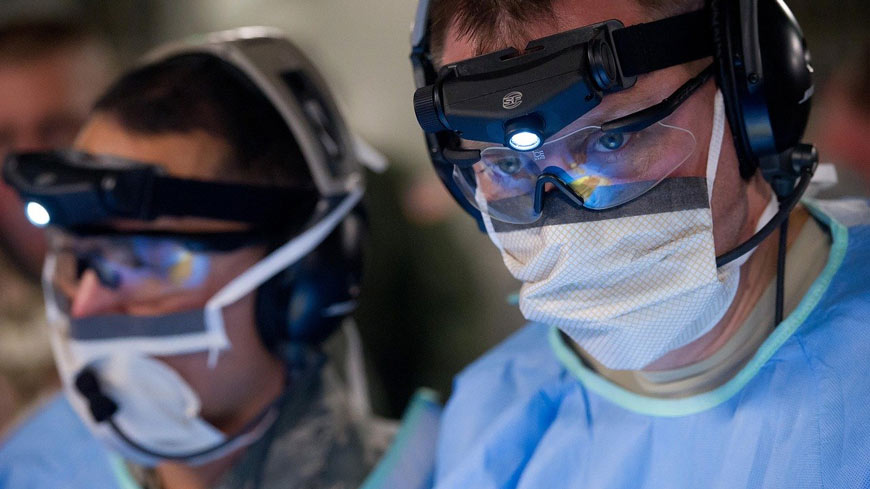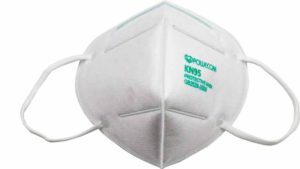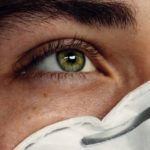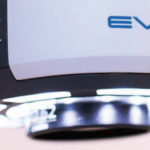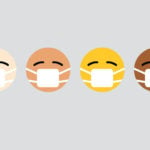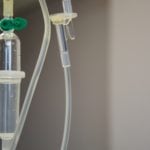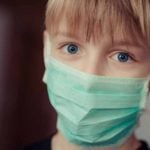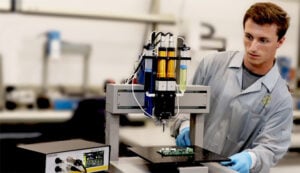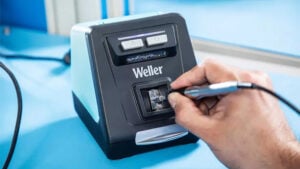This post will help you understand meaningful differences between various face mask evaluation methods and best-case use. Understanding the most common mask materials and expected performance metrics helps buyers better decide which mask is most appropriate for associated risk, cost, and wellbeing.
Define a Surgical Mask
Per the FDA, a surgical mask is loose fitting and disposable. It creates a physical barrier between the mouth, nose, and intended-use environment. Surgical masks are intended as single use items.
Are Surgical Masks Medical Devices?
Surgical medical masks are considered medical devices and are regulated by the Food and Drug Administration (FDA). All “medical masks” will carry a classification from the American Society of Testing and Materials (ATSM).
Components of Surgical Masks Performance Criteria
The FDA, who oversees the sale and marketing of all surgical masks, recommends that manufacturers demonstrate mask performance in these areas:
- Fluid Resistance
- Differential Pressure
- Particulate Efficiency
- Bacterial Filtration Efficiency
- Flammability
- Biocompatibility
The FDA is responsible for balancing the safety of imported materials while also ensuring that alternative PPE products are available in worst case scenarios.
What are the ASTM Standards for Surgical Face Masks?
The FDA requires test performance data for medical face masks including bacterial filtration efficiency (ASTM F2101), sub-micron particulate filtration efficiency (ASTM F2299), differential pressure (MIL-M-36954C), fluid penetration resistance (ASTM F1862) and flammability (16 CFR Part 1610) [8].
Bacterial Filtration Efficiency
ASTM standards are referenced by the Food and Drug Administration (FDA), as the endorsed standard in the United States. The current standard ASTM F2100-11 (2018) specifies the performance requirements for Medical Face Masks with five basic criteria:
1. BFE (Bacterial Filtration Efficiency): BFE measures how well the medical face mask filters out bacteria when challenged with a bacteria-containing aerosol. ASTM specifies testing with a droplet size of 3.0 microns containing Staph. Aureus (average size 0.6-0.8 microns).
In order to be called a medical/surgical mask, a minimum 95% filtration rate is required. Moderate and high protection masks must have bacterial filtration rates greater than 98%.
Particulate Filtration Efficiency
2. PFE (Particulate Filtration Efficiency): PFE measures how well a hospital mask filters sub-micron particles with the expectation that viruses will be filtered in a similar manner. The higher the percentage, the better the mask filtration. Although testing is available using a particle size from 0.1 to 5.0 microns, ASTM F2100-11 specifies that a particle size of 0.1 micron be used.
When comparing test results it is important to note the size of the test particles used, as use of a larger particle size will produce a misleading PFE rating.
Continue to: Particulate Filtration Testing Methods – How It Works
Mask Fluid Resistance Testing
3. Fluid Resistance: Fluid resistance reflects the surgical mask’s ability to minimize the amount of fluid that could transfer from the outer layers through to the inner layer as the result of a splash or spray. ASTM specifies testing with synthetic blood at pressures of 80, 120, or 160 mm Hg to qualify for low, medium, or high fluid resistance.
These pressures correlate to the ability to create a fluid barrier at various pressures.
(Level 1) 80 mm Hg = venous pressure
(Level 2), 120 mm Hg = arterial pressure
(Level 3) 160 mm Hg = high pressure irrigation
(Level 3) correlates to potential high pressures that may occur during trauma, or surgeries that include high pressure irrigation such as orthopedic procedures.
Face Masks Pressure Differential
4. Delta P (Pressure Differential): Delta P measures the air flow resistance of the medical mask and is an objective measure of breathability. The Delta P is measured in units of mm H2O/cm2 and the lower the value the more breathable the mask feels. The ASTM standard requires that masks have a Delta P of less than 5.0 for moderate and high barrier masks, whereas low barrier masks must have a Delta P of less than 4.0.
Flame Resistance
5. Flame Spread: As hospitals contain sources of oxygen, heat, and fuel the ASTM F2100-11 standards include testing for flame resistance. Testing dictates that all hospital masks must withstand exposure to a burning flame (within a specified distance) for three seconds.
Skin Sensitivity and Cytotoxic Tests
5. ISO Certification: In addition to the above tests, all medical face masks must be tested to an international standard (ISO 10993-5, 10) for skin sensitivity and cytotoxic tests to ensure that no materials are harmful to the wearer. Tests are conducted on materials used in construction of the mask which come in contact with the user’s skin.
How Does the FDA Face Mask Regulation and Policy?
The FDA is responsible for balancing the safety of imported materials while also ensuring that alternative PPE products are available in worst case scenarios.
In dire scenarios, the FDA adopts more flexible policies, specifically for international manufacturers who otherwise would not have FDA premarket approval, a requirement for medical masks and surgical masks.
Some policies are only intended to remain in effect for the duration of a public health emergency.
FDA Face Mask Policy and Changes
FDA requirements are moving targets. As health and science data changes so does the FDA. New products, new science, new market entrants, and widespread health emergencies make understanding the difference between what the FDA said today — and what the FDA said yesterday — a full time job. For example, Emergency Use Authorization for Face Masks.
FDA Authorized KN95 Masks
Authentic Disposable KN95 Face Masks
This mask is included on the FDA Emergency Use Authorization (EUA) list, and manufactured by Guangzhou Powecom Labor Insurance Supplies.
These KN95 masks were selected after testing KN95 samples from 6+ different manufacturers.
By far, these are the best quality, softest, and most comfortable of the KN95 masks PAC received for testing.
Timeline of FDA Face Mask Policy Changes & Guidelines
Some policies are only intended to remain in effect for the duration of a public health emergency.
March 25th – FDA announced procedures for making available FDA guidance documents related to the COVID-19 PHE
April 10th 2020 – Temporary Policy Regarding Non-Standard PPE Practices for Sterile Compounding by Pharmacy Compounders not Registered as Outsourcing Facilities During the COVID-19 Public Health Emergency (April 10, 2020) (Updated May 14, 2020)
April 18th – Enforcement Policy for Face Masks and Respirators During the Coronavirus Disease (COVID-19) Public Health Emergency
April 24th (Revised) – Enforcement Policy for Face Masks and Respirators During the Coronavirus Disease (COVID-19) Public Health Emergency
Unknown – Enforcement Policy – Original Publish
May 2020 (Revised) Enforcement Policy
Surgical Face Mask Availability
Surgical grade masks are only recommended for healthcare and front line workers. ASTM 2 and ASTM 3 level three masks will become available again over time, but are currently delivered based on allocation only. Surgical and medical face masks (ASTM Level 1 and ASTM Level 2) are currently not currently in stock at PAC, however this post will be updated as stock levels equalize.
Six distributors make up 90% of the U.S. medical-surgical distributors. N95 masks, gloves, and surgical grade masks will likely remain in short supply for the remainder of 2020 and well into 2021.
The Center for Infectious Disease Research and Policy (CIDRAP) reports:
“..as of Jul 14, FEMA and the Department of Health and Human Services have coordinated delivery of 103.1 million N95 masks, 159.3 million surgical masks, 17.2 million face shields, 74.5 million surgical gowns/coveralls, 139.4 million gloves, 34.2 million K95 respirators, 13.8 million KN90 masks, and 2.4 million thermometers.”
CIDRAP – 07/2020
As of July 17th, in Minnesota supply chain still lags behind,
“the state is waiting on, state data show 2.2 million face masks, over 48.7 million gloves, nearly 2.9 million N95 respirators and 148,000 gowns that are listed as “past due.”
Kare 11 News
Emergency Procurement of Surgical Grade Masks and N95s
Mask Donation and Mask Locator Websites
Alternatives include websites like findthemasks.com and getusppe.org
FEMA
Under FEMA declarations, fire and EMS departments may be eligible to order supplies and equipment related to your COVID-19 response if you are in a locality designated under a Federal Emergency Management Agency (FEMA) emergency (EM) or major disaster (DR) declaration.
Production Automation Corporation (PAC) is an essential business and a dedicated supplier of protective equipment since 1972. Have questions? Call for phone support during business hours. Email, start a live chat, or request a quote. (Si, hablamos espanol)

How Have Face Masks Changed Over Time? A Brief History of Face Coverings
Masks were not always made from advanced textiles and multilayer construction. What makes these materials so meaningful when manufacturing PPE equipment, and how has mask technology changed over time?
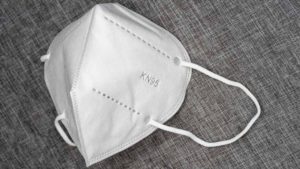
Where Can I Buy FDA Approved KN95 Masks?
When you buy face masks from PAC you’ll have the benefit of masks shipped from USA warehouses, in-stock availability, and bulk pricing.
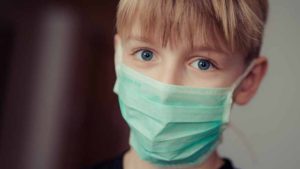
What’s a Medical Mask? Why is It Different from a Procedural Mask?
Medical masks by definition, must be validated at a minimum of ASTM Level 1.
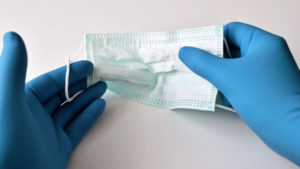
What are the Standards for ASTM Face Mask Testing?
This post will help you understand the context, performance criteria, and minimum requirements of ASTM levels in various medical masks and their respective uses fields.
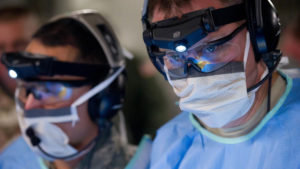
Surgical Medical Masks ASTM Level 3 Requirements
This post will help you understand meaningful differences between various face mask evaluation methods and best-case use. Understanding the most common mask materials and expected performance metrics helps buyers better decide which mask is most appropriate for associated risk, cost, and wellbeing.

ASTM F2299M Medical Face Mask Test Method – Filtration Efficacy Testing
The F2299M filtration efficacy test compares particle counts before a test media meets a filter apparatus (upstream) and then measures again after (downstream) the test media passes through the material.
Related Posts
-
FDA Cleanroom Requirements for Face Masks, Surgical Gowns and PPE Production
Question: “What Class clean room is required to manufacture FDA approved N95 masks, isolation gowns, surgical masks, etc.?”.
-
Guide to Camera Microscopes for Medical Device and Surgical Inspection
Surgery and other medical procedures require precise, clean, and well maintained instruments. Dirty surgical instruments are more common than one might think. Post-cleaning inspection devices provide a critical bridge between decontamination, the sterilization processes, and…
-
Where to Buy Bulk 3 Ply Face Masks In Stock August 2020
Production Automation Corporation (PAC - that's us) currently has received new inventory of in-stock procedural face masks, ready to ship.
-
Face Mask Definitions & Terms
Define surgical mask, filtering respirator, 3 ply mask, and medical mask.
-
ISO 13485:2016 Medical Devices
ISO 13485 is designed for use throughout the life cycle of a medical device. It supports each stage of medical device development and operation from initial concept to production and disposal. The standard helps internal…
-
What's a Medical Mask? Why is It Different from a Procedural Mask?
Medical masks by definition, must be validated at a minimum of ASTM Level 1.

